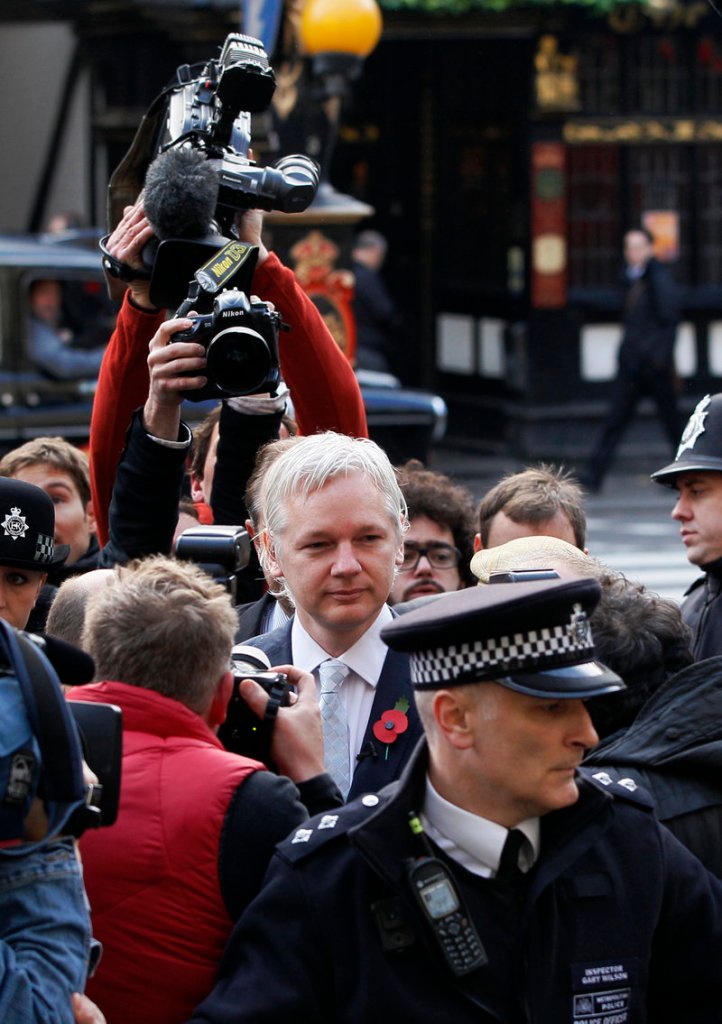LONDON – WikiLeaks founder Julian Assange lost his battle against extradition Wednesday when Britain’s High Court ruled that he should be sent to Sweden to face questioning over allegations of sexual misconduct.
The judgment was handed down by High Court judges John Thomas and Duncan Ouseley with Assange in attendance, wearing a dark suit and a Remembrance Day poppy.
In their ruling, the judges said that the European Arrest Warrant that triggered Assange’s arrest and subsequent proceedings by the Swedish authorities were “proportionate.”
Lawyers for the 40-year-old Australian are expected to seek permission to appeal the decision to the Supreme Court. The legal team must lodge an application within the next two weeks, and make a case that a “point of law of general importance” is at stake.
Swedish authorities have not charged Assange, but they want to question him over allegations of sexual molestation, unlawful coercion and rape made by two Swedish women after a trip to Stockholm last year. Assange vehemently denies the charges.
A British judge had ordered Assange’s extradition in February, but his legal team appealed, arguing that the arrest warrant was flawed and the sex was consensual and would not be considered a crime in England.
After Wednesday’s ruling, Assange delivered a short statement to the jostling throng of reporters outside of the Royal Courts of Justice. It was a marked contrast to the lengthy, defiant speeches he made after previous hearings.
“I have not been charged with any crime, in any country. Despite this, the European Arrest Warrant is so restrictive that it prevents U.K. courts from considering the facts of a case, as judges have made clear here today,” Assange said. “We will be considering our next steps in the days ahead.”
He also urged people to visit swedenversusassange.com, a website commissioned by Assange’s defense fund, “if you want to know what’s really going on in this case.”
If the Supreme Court hears Assange’s appeal, a decision in the case could take up to a year. If it does not, British law enforcement officers will arrange for Assange to be extradited to Sweden within 10 days.
In his recently published “unauthorized autobiography,” Assange conceded he was cold to the two Swedish women he calls “A” and “W,” but denied criminality.
“I wasn’t a reliable boyfriend, or even a very courteous sleeping partner, and this began to figure,” he wrote. “Unless, of course, the agenda had been rigged from the start.”
Send questions/comments to the editors.



Success. Please wait for the page to reload. If the page does not reload within 5 seconds, please refresh the page.
Enter your email and password to access comments.
Hi, to comment on stories you must . This profile is in addition to your subscription and website login.
Already have a commenting profile? .
Invalid username/password.
Please check your email to confirm and complete your registration.
Only subscribers are eligible to post comments. Please subscribe or login first for digital access. Here’s why.
Use the form below to reset your password. When you've submitted your account email, we will send an email with a reset code.